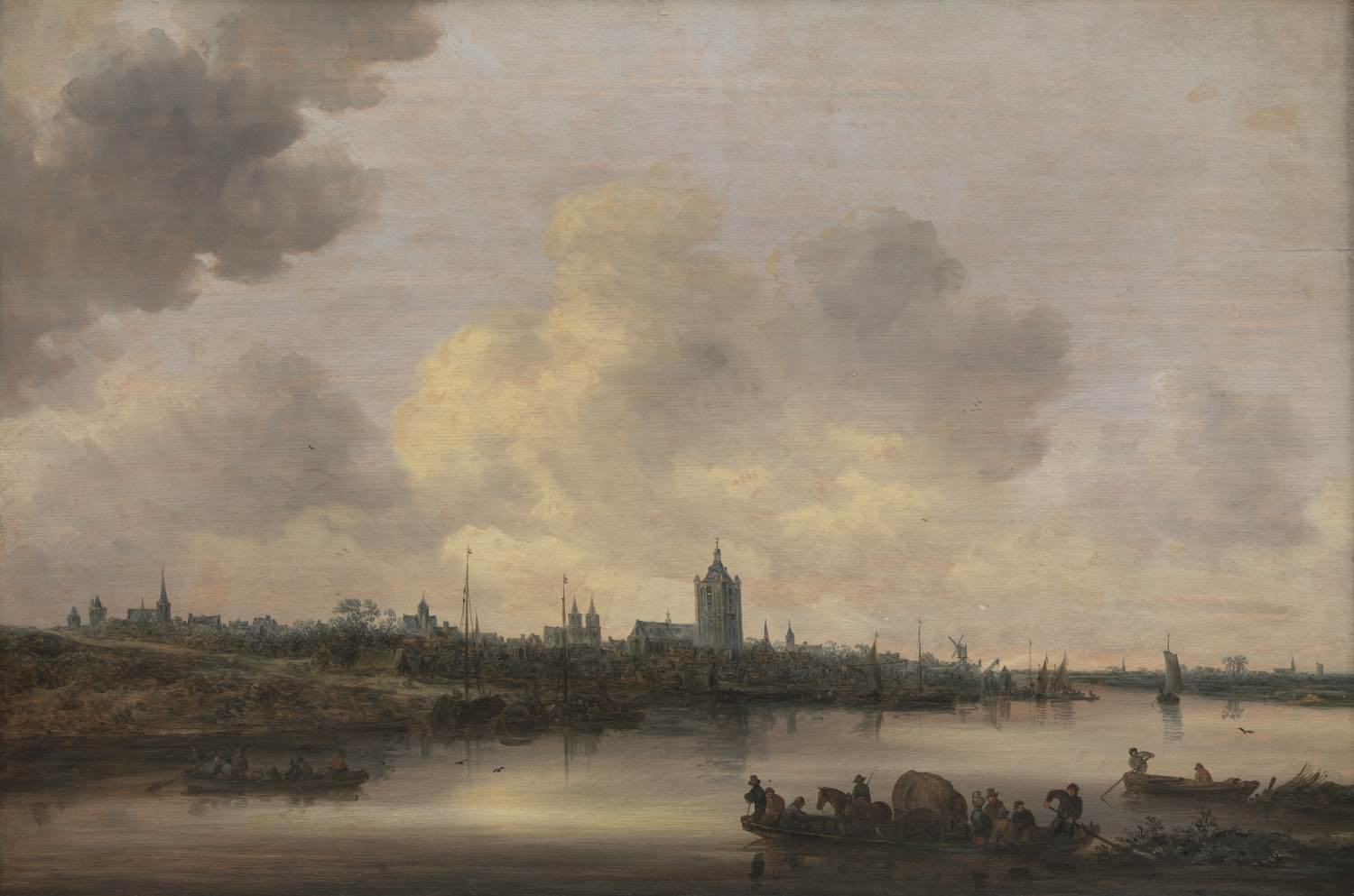Description
Jan Van Goyen's painting View of the City of Arnhem is a work that stands out for its artistic style and composition. This work belongs to the landscape genre, and shows a view of the Dutch city of Arnhem in the 17th century.
Jan Van Goyen's style is characterized by simplicity and economy of means. In this work, the artist uses a limited palette of colors, mostly earth tones and grays, to represent the urban landscape. The technique used is oil on canvas, and the finish is soft and delicate.
The composition of the work is very careful, and shows a panoramic view of the city from a nearby hill. In the foreground, there are some trees and bushes, which frame the view of the city. At the center of the work is the Rhine River, which runs through the city. On both sides of the river, you can see the buildings and houses of the city, with their red roofs and brick facades.
One of the most interesting aspects of this work is its coloring. Despite the limited color palette, Jan Van Goyen manages to create a sense of depth and atmosphere. Gray and earthy tones are combined with lighter and brighter tones, such as the blue of the sky and the green of the trees, to create a very effective light and shadow effect.
The history of the painting is also very interesting. Jan Van Goyen was a 17th-century Dutch artist, and this work was done in 1641. The painting was acquired by the Museum of Fine Arts, Boston in 1924, and has been one of the highlights in its art collection ever since European.
In short, the painting View of the City of Arnhem by Jan Van Goyen is a work that stands out for its artistic style, its composition, and its coloring. This work is a sample of the talent of this great Dutch artist, and is a jewel of European art from the 17th century.

